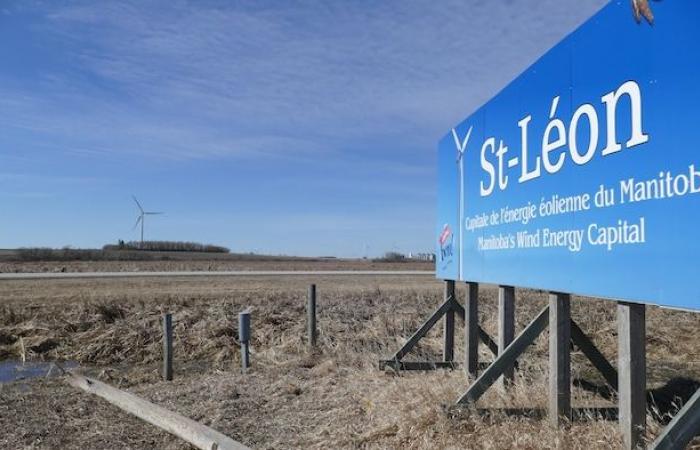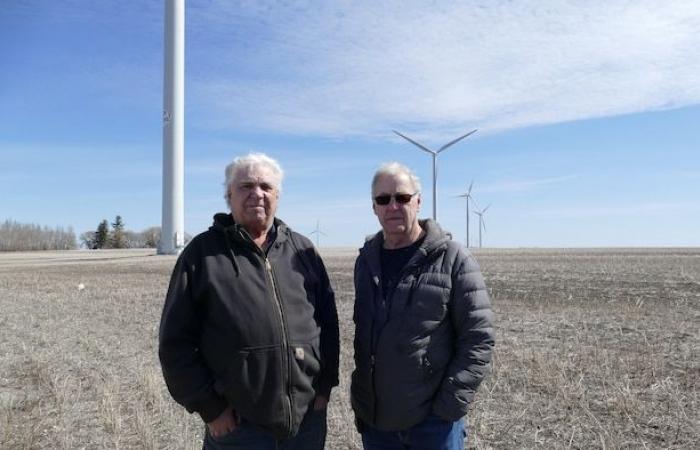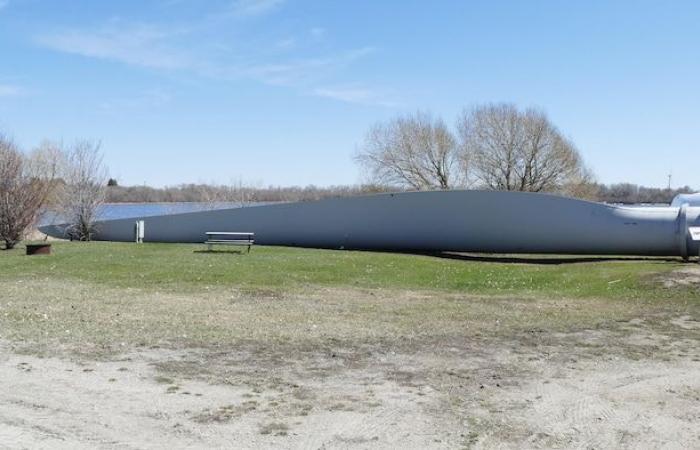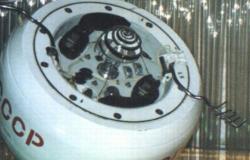20 years ago this spring, the wind turned the first wind turbine in the Saint-Léon park, about 150 kilometers southwest of Winnipeg. Procedures are now underway to accommodate new windmills in the rural municipality of Lorne.
It’s a good deal to participate in making the world greener. Also, we need more electricity with the cars that come from it and we have more electricity needs. We help Canada and the world make progress
launches the prefect of the municipality, Aurel Pantel.
On April 28, 2005, Gary Doer, the Prime Minister of Manitoba at the time, activated the switch of the first wind turbine in the province, while Saint-Léon welcomed the first wind farm in the province. He described the moment of Symbol of Manitoba’s commitment to more environmentally friendly energy types.
Today, the wind farm, which rides the rural municipalities of Lorne and Pembina, managed by the company Algonquin Power and Utilities Corporationis made up of 73 turbines and generates 120 megawatts of electricity, according to a web page of the Manitoba government.
It’s a pride to have that here. This is another source of electricity for Manitoba. We can say that we are the pioneers of the wind in Manitoba
underlines Christopher Grenier, a farmer who has four wind turbines on his lands.
Wind mills are planted in the fields of around fifty producers from this agricultural region. There Algonquin Power and Utilities Corporation pay the royalties of 62 sous per megawatts produced for each round on their land.
Every year when you receive the check, you are very happy and if I could have 50 other wind turbines on my field I would take 50 others
adds Christopher Grenier.

Open in full screen
Christopher Grenier, the vice-president of the Corporation of Community Development Lourdéon.
Photo : Radio-Canada / Simon Deschamps
Wind turbines, it doesn’t make noise, except twice a year when it makes Chiching, when the checks arrive
testifies Gilles Martel, who was part of the committee to make the wind farm a reality in Saint-Léon and whose son has wind turbines on his land.
Since 2005, the wind capacity of Manitoba has more than tenfold, going from 20 MW nearly 260 MW In 2021, according to the Manitoba energy management web page. The same year, wind energy represented around 4 % of the province’s electricity production capacity. In 2021, more than 96 % of Manitoba electricity production came from hydroelectric sources, compared to 99 % in 2015.

Open in full screen
Saint-Léon hosted the first wind farm in Manitoba. Another wind farm in Manitoba is in Saint-Joseph.
Photo : Radio-Canada / Simon Deschamps
In her Clean energy roadmap Presented in 2023, The progressive manitoba-conservative government said they wish to pass its electricity production capacity from 10,000 to 16,000 MW By 2040, mainly thanks to wind energy. The neo-democrats improved this plan last fall with the objective of making the province carboneutrum by 2050.
Hydro-Manitoba recently launched a project to acquire up to 600 megawatts of new wind energy in southern Manitoba through one or more electricity purchasing contracts. Each wind farm could produce up to 200 megawatts. Each new wind farm must mainly belong to an indigenous nation (or multiple nations) in Manitoba, and we will buy the electricity of each establishment
writes the state -owned company.
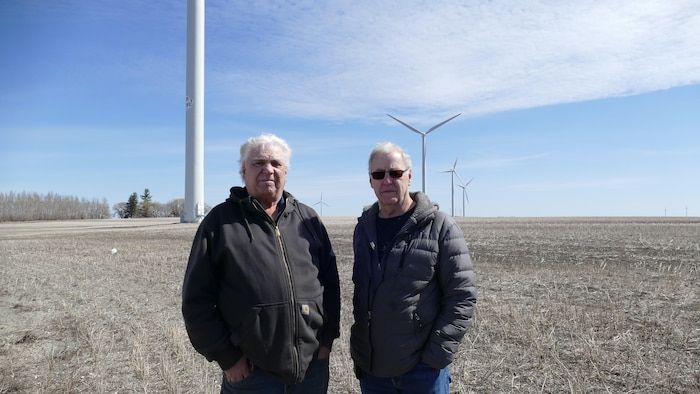
Open in full screen
Gilles Martel and the prefect of the rural municipality of Lorne, Aurel Pantel.
Photo : Radio-Canada / Simon Deschamps
The prefect of the municipality of Lorne, Aurel Pantel, says that steps have been taken in this sense in his region. At the moment, there are companies that tour the municipality and speak to people and when enough land will be secure they will make an offer to Hydro-Manitoba to build other windmills
he said. I’m not saying it will happen for sure, but it sounds positive.
The submissions selected will be announced in the spring of 2026, said the Crown Company. Hydro-Manitoba adds that the construction calendars should start in spring 2027. A schedule that agreed with what Mr. Pantel heard companies that walk his region.
Source of economic development
Wind turbines report more than $ 500,000 annually in land taxes, says Aurel Pantel. In a booklet presenting the project in Saint-Léon, it was indicated that in 25 years, the wind farm will generate nearly $ 20 million in land taxes and 14 million in provincial taxes
.
If at the time the hotels and restaurants of the region worked at full speed to house and feed workers from all over Canada and to the United States, today it is quieter, but still good economically for the region, maintains Christopher Grenier, also vice-president of the Lourdéon community development corporation.

Open in full screen
A blade of wind turbines in front of a picnic table.
Photo : Radio-Canada / Simon Deschamps
Today, the wind farm employs fifteen people. I don’t think there are many who live here, but they come to the region every day. They spend money, buy petrol, a restaurant sandwich
he says If we can make local money spend, that’s big.
Saint-Léon is a community of a hundred people. According to the latest Census of Statistics Canada in 2021, the rural municipality of Lorne has just over 2,900 inhabitants.
Wind turbines attracted tourism in the early years. There were bus towers. There it calmed down a little, but there were people in mass which stopped on the paths and took photos
recalls Gilles Martel.
After 20 years, wind turbines continue to forge the identity of Saint-Léon, as in fact the name of the only village restaurant, the Windmill Café and their presence in the exhibitions at the Saint-Léon interpretation center.



